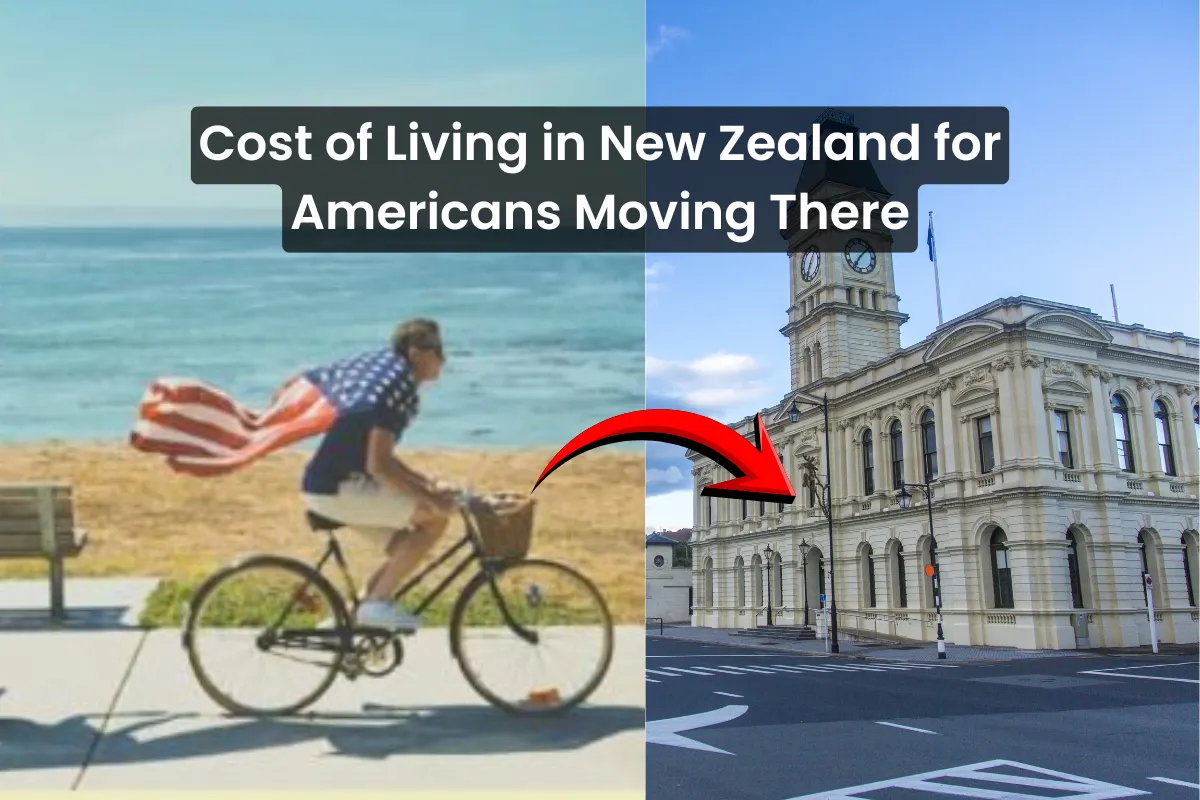
Cost of Living in New Zealand for Americans Moving There
If you are an American thinking about moving to New Zealand, one of the first things that comes to mind is how expensive life will be there. The cost of living in New Zealand can feel different depending on where you come from, how you live, and which city you choose. In this guide, we will help you understand the real costs, from housing and food to transport and healthcare, so you can plan your move wisely. By the end of this article, you’ll have a clear picture of what to expect and how to manage your budget when starting a new life in New Zealand.
Understanding the Cost of Living in New Zealand
The cost of living in New Zealand refers to how much money you need each month to cover your basic needs such as rent, food, transport, utilities, healthcare, and entertainment. It is different for everyone depending on their lifestyle. For example, someone living in Auckland, the largest city, will spend more than someone living in a smaller town like Dunedin or Invercargill.
New Zealand is known for its beautiful nature, clean environment, and high quality of life. However, these benefits also come with a price. While many things might cost less than in big U.S. cities like New York or Los Angeles, others can be more expensive due to import taxes and limited availability of some goods.
Average Monthly Expenses
Let’s look at what you can expect to spend on average:
- For a single person, the cost of living in New Zealand is around NZD 3,000 to NZD 4,300 per month (about USD 1,800 to USD 2,600).
- For a family of four, monthly expenses can go up to NZD 6,500 or more depending on lifestyle and location.
While groceries and some services are affordable, housing and transportation costs are usually higher, especially in big cities.
Housing and Rent
Housing is often the biggest part of the cost of living in New Zealand. If you plan to live in Auckland, Wellington, or Christchurch, expect higher rent prices than in smaller cities.
- A one-bedroom apartment in the city center can cost around USD 1,300 to 1,500 per month.
- Outside the city center, prices may drop to about USD 1,000.
- Buying property in New Zealand is also expensive, with house prices rising each year due to demand.
If you are moving for work or study, consider living in suburban or smaller towns where rent and daily costs are lower.
Food and Groceries
Food costs can vary, but they are generally similar to prices in the U.S. Some imported products, however, can be more expensive due to shipping. A simple meal at a restaurant might cost around NZD 25, while a week’s groceries for one person might range from NZD 120 to NZD 200.
Cooking at home is often cheaper than eating out. Many Americans in New Zealand find local produce like fruits, vegetables, and dairy products to be fresh and affordable. Eating local foods can help you manage your overall cost of living in New Zealand.
Utilities, Internet, and Transportation
Basic utilities like electricity, heating, water, and garbage collection can cost about NZD 200–250 per month. Internet plans are similar to U.S. prices and usually range from NZD 60 to NZD 100 monthly.
Transportation costs depend on how you travel. Public transport is available in large cities, but it may not be as widespread as in the U.S. Many expats choose to buy a car for convenience, especially if they live outside city centers. Gas prices are higher in New Zealand, so owning a car can add a noticeable amount to your cost of living in New Zealand.
Healthcare and Insurance
Healthcare in New Zealand is high quality, but as an American, you might not automatically qualify for public healthcare unless you become a resident. If you are on a work visa or visitor visa, you will likely need private health insurance.
Private healthcare can be costly — a doctor’s visit might range between NZD 100 to NZD 250. For long-term residents, the public healthcare system offers free or low-cost services, but many still choose private insurance for faster appointments. It’s important to check your NZeTA Visa Status and know whether your visa allows access to any healthcare benefits.
Lifestyle and Entertainment
Life in New Zealand offers many outdoor activities like hiking, cycling, and surfing, which are often free or inexpensive. However, social activities such as dining out, movie nights, or concerts can quickly add up.
A gym membership might cost around NZD 70 to 100 per month, and a movie ticket can cost about NZD 20. If you enjoy exploring, weekend trips to nearby beaches or mountains are affordable, but domestic flights between islands can be expensive. Planning ahead helps you balance fun with your budget.
Comparing New Zealand to the United States
When comparing the cost of living in New Zealand to that in the U.S., most people find that while daily essentials like groceries are slightly cheaper, housing and transportation are costlier. The average salary in New Zealand is lower than in the U.S., so even if prices seem similar, your savings might not stretch as far.
However, what attracts many Americans is the overall quality of life — a cleaner environment, less stress, friendly communities, and stunning natural scenery. Many expats agree that even though living costs may not be drastically lower, the lifestyle in New Zealand feels healthier and more relaxed.
Tips for Americans Moving to New Zealand
- Plan a realistic budget before moving. Include all your expected expenses — rent, utilities, healthcare, and travel.
- Research your city carefully. Smaller towns are cheaper than Auckland or Wellington.
- Submit NZeTA Online before you travel to ensure your entry process goes smoothly.
- Check your NZeTA Visa Status regularly to avoid any visa issues while living there.
- Open a local bank account to avoid high conversion fees.
- Use local markets for groceries and local transport cards to save money.
- Keep some savings aside for emergencies or unexpected costs.
Final Thoughts
The cost of living in New Zealand can seem high at first glance, but many Americans find that it is worth it for the lifestyle, safety, and natural beauty the country offers. Life in New Zealand is peaceful, community-focused, and ideal for families or individuals seeking balance between work and leisure.
If you are moving from the U.S., remember that planning and budgeting are the keys to a smooth transition. By understanding what to expect and managing your expenses wisely, you can enjoy everything this beautiful country has to offer without financial stress.
Before packing your bags, make sure to Submit NZeTA Online and check your NZeTA Visa Status. Once you are ready, you can begin your new adventure in one of the most breathtaking and welcoming countries in the world.





